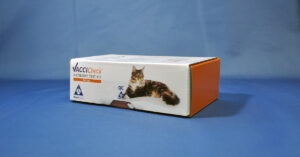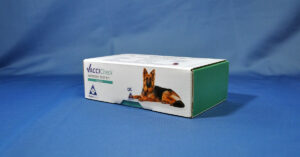SPOT Platinum+ is the most trusted in-vitro (blood/serum) allergy test on the market. With thousands of veterinary partners around the country and represented in 70 countries worldwide, our test has become recognized as the gold standard for serum allergy testing.
The SPOT Platinum+ test examines 92 different environmental allergens. This includes indoor allergens, such as house-dust mites and molds, and outdoor ones like pollens from trees, grasses and weeds. After performing the SPOT Platinum+ test you will know which allergens the animal is allergic to and treatment can begin.
Serum testing was originally developed as an alternative to the more invasive intradermal testing. This type of testing can still be performed by a Veterinary dermatologist but also allows general veterinarians to manage a majority of cases in house, as the testing is conducted via a serum sample that is sent out to a lab. This testing does not require any medication withdrawal and can also include foods we wish to challenge sensitivity to (up to 91 allergens). At the end of the testing a color substrate is added to the plate and results are ran through a color spectrometer to measure the level of reaction. Within about 5 to 7 days results are then faxed or emailed over to the clinic from the lab.
Nextmune’s ELISA-based serum test uses proprietary methods in order to produce a highly specific result. On top of being the only fully automated allergy testing laboratory in the US, Nextmune has also moved away from the commonly-used bovine serum assay and invested in fully synthetic reagents. We have also created buffering agents that bind to the competing IgG, IgA and IgM in serum, reducing interference in our testing. These 2 applications have resulted in a 20% reduction in false positives.
In order to maintain a leadership position in the allergy testing space, Nextmune has recently developed a new blocking agent which also reduces interference created by cross-reactive carbohydrate determinate antibodies. These are also known as CCDs or anti-CCDs. The CCDs in the serum bind to the allergen protein in a similar way to IgE therefore by blocking the CCDs, we are able to get the true IgE signal from the serum.




